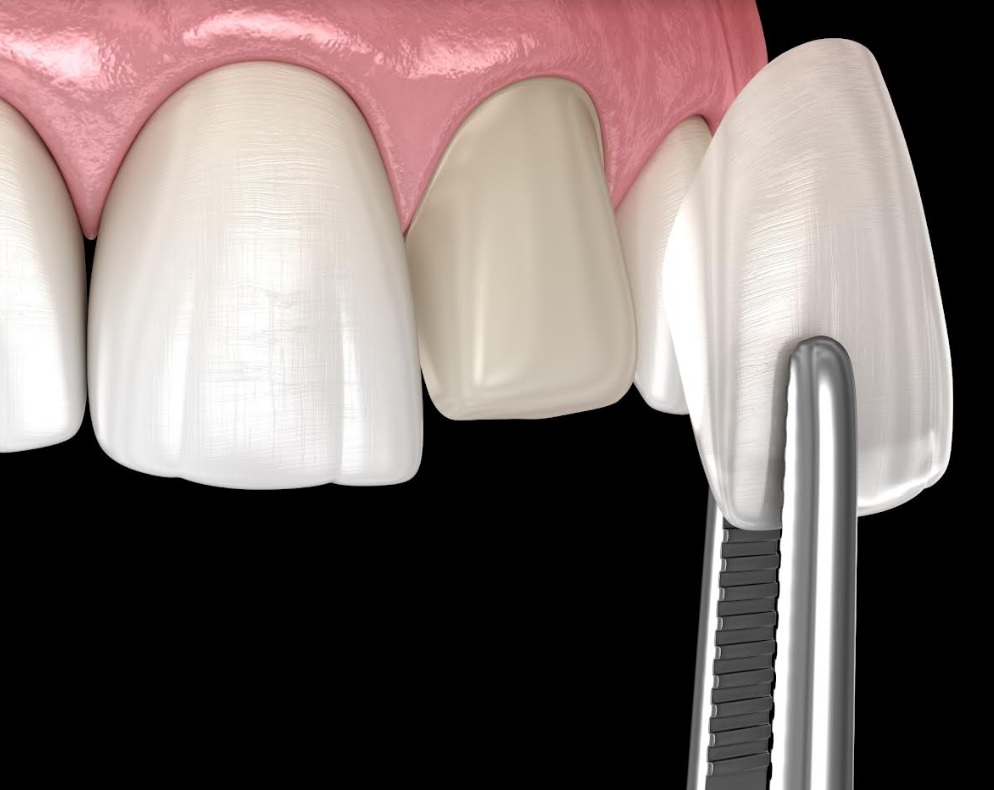Welcome to the future of tooth replacement!
Ongoing dental research releases studies and products that enhance oral health and that help to improve the quality of life for dental patients. Ceramic implant dentistry is one of the new areas in dental practice emerging from these studies.
In this comprehensive guide, we will explore the world of ceramic implant dentistry, the benefits, the procedure involved, and why choosing a qualified ceramic implant dentist is crucial.
Understanding Ceramic Implants
Let’s start by understanding what ceramic implants are all about. Ceramic implants are tooth replacement options made of biocompatible ceramic material, typically zirconia. Unlike traditional dental implants that utilize titanium, ceramic implants offer several advantages.
First, the body rarely rejects ceramic implants due to their high biocompatibility. Therefore, allergic reactions and sensitivities rarely happen after implantation.
Second, they resemble teeth, which ensures seamless integration and boosts confidence and appearance.
The Benefits of Ceramic Implant Dentistry
Ceramic implant dentistry is an attractive option for patients seeking tooth replacement due to its numerous benefits.
One of the primary advantages is the remarkable biocompatibility of ceramic implants. Due to the use of ceramic material, they integrate seamlessly with the surrounding bone and gum tissue, promoting long-term success and minimizing the risk of complications.
Additionally, ceramic implants offer exceptional durability, ensuring they can withstand the demands of daily use and last for many years.
Furthermore, ceramic implants help preserve the integrity of the jawbone and gum tissue. Unlike traditional options like bridges or dentures, which may lead to bone loss over time, ceramic implants stimulate bone growth, preventing deterioration and maintaining the facial structure. This preservation of the supporting tissues enhances oral health and overall comfort.
The Procedure: What to Expect During Ceramic Dental Implantation
The journey begins with an initial consultation and evaluation, during which your dentist will assess your oral health, examine your jawbone density, and discuss your treatment goals.
Following this, the dentist develops a personalized treatment plan considering unique factors for each patient.
During the implant placement procedure, the dentist will carefully insert the ceramic implants into the jawbone. Modern dental equipment and techniques ensure the process is minimally invasive and often performed under local anesthesia.
After the procedure, you need time to heal. During this time, the implants integrate with the bone to form a stable foundation for the prosthetic tooth.

Maintaining Ceramic Implants
Maintaining ceramic implants is relatively straightforward. Brushing your teeth twice a day and flossing remain essential. Use a soft-bristled toothbrush and friendly toothpaste to avoid scratching the ceramic implant.
Additionally, routine dental check-ups and professional cleanings are vital to ensure the longevity and health of your ceramic implants.
Potential Considerations and Limitations
While ceramic implant dentistry offers numerous benefits, it is essential to consider certain factors.
Dentists consider factors like overall health, jawbone density, and smoking habits before recommending ceramic implants.
Additionally, the cost of ceramic implants may be higher than other tooth replacement options. However, considering their long-term durability and aesthetic appeal, many patients find it a worthwhile investment.
Choosing a Qualified Ceramic Implant Dentist:
Here is what to consider to help you make an informed decision:
- Specialized Training and Experience: Ceramic implant dentistry requires specific training and expertise. Look for a dentist who has undergone specialized training in implantology, particularly in the placement and restoration of ceramic implants. Experience plays a crucial role, so inquire about the number of ceramic implant procedures the dentist has performed and their success rates.
- Credentials and Certifications: Verify the dentist’s credentials and certifications. A reputable ceramic implant dentist will typically have affiliations with professional organizations and societies related to implant dentistry. These affiliations indicate their commitment to staying updated with the latest advancements and adhering to high standards of practice.
- Patient Testimonials and Reviews: Reading patient testimonials and reviews can provide valuable insights into the dentist’s skills, chairside manner, and the overall patient experience. Look for testimonials specifically related to ceramic implant procedures to gauge the dentist’s expertise in this area. Online platforms, dental review websites, and recommendations from friends and family can be excellent sources for gathering this information.
- Consultations and Communication: Schedule consultations with potential ceramic implant dentists to discuss your specific needs, concerns, and treatment goals. It is an opportunity to evaluate their communication style, attentiveness, and willingness to address your questions. A skilled and knowledgeable dentist will listen to your concerns, explain the procedure, and provide personalized treatment recommendations.
- Technology and Facilities: Inquire about the technology and facilities available at the dental practice. A well-equipped dental office with state-of-the-art imaging technology, such as cone beam computed tomography (CBCT), ensures accurate diagnostics and precise treatment planning. It can contribute to the success and efficiency of your ceramic implant procedure.
- Comprehensive Treatment Approach: A qualified ceramic implant dentist will take a comprehensive approach to your treatment. The dentist will explain the personal and health factors to determine your suitability for ceramic implants. Additionally, they will explain alternative treatment options if ceramic implants are not a good fit for your specific case.
- Continuing Education: Dentistry is a rapidly evolving field, and advancements in ceramic implant dentistry continue to emerge. A dentist who invests in continuing education and stays abreast of the latest research and techniques commits to offering the best possible care. Inquire about their participation in conferences, seminars, and workshops related to ceramic implant dentistry.
Take the time to research, gather information, and trust your instincts. A skilled and knowledgeable dentist will guide you through the process, ensuring optimal results, a comfortable experience, and a restored smile you can confidently enjoy for years.
The Future of Ceramic Implant Dentistry
In addition to improving materials and enhancing success rates, the future of ceramic implant dentistry holds several exciting possibilities. Researchers and dental professionals are actively exploring new avenues to push the boundaries of this field. Here are some potential advancements that could shape the future of ceramic implant dentistry:
- Enhanced Osseointegration: Osseointegration refers to the process of the implant fusing with the jawbone. Future advancements may focus on optimizing the osseointegration process, leading to more stable implant integration. It can reduce the healing time and improve the overall success rates of ceramic implants.
- Advanced 3D Printing Technology already makes significant contributions to dentistry. The technology will play a prominent role in the future of ceramic implant dentistry. As 3D printing technology evolves, it will enable more precise and customizable implant designs tailored to each patient’s unique anatomy. It could result in improved aesthetic outcomes and better functional integration.
- Bioactive Materials: Bioactive materials have the potential to revolutionize ceramic implant dentistry. These materials can interact with the surrounding tissues, promoting enhanced healing and regeneration. In the future, bioactive ceramics may result in implants that actively support tissue growth and improve the overall success of ceramic implant restorations.
- Hi-tech Implants: Technology integration into dental implants is an area of ongoing research. Intelligent dental implants could incorporate sensors and monitoring capabilities to provide real-time information about the implant’s status, such as detecting early signs of complications or monitoring the forces exerted on the implant during biting and chewing. It could allow for early intervention and personalized treatment plans, improving patient outcomes.
- Nanotechnology: Nanotechnology holds immense potential for ceramic implant dentistry. Manipulating ceramic materials at the nanoscale enhances their mechanical properties, biocompatibility, and antimicrobial capabilities. Nanotechnology may also enable the development of surface coatings that promote tissue integration and prevent bacterial colonization, reducing the risk of implant-related complications.
- Regenerative Approaches: Regenerative medicine techniques, such as tissue engineering and stem cell therapies, have shown promise in various fields of medicine. In the future, ceramic implant dentistry may lead to regeneration of the tooth and supporting structures like periodontal ligaments and alveolar bone. It could lead to a more comprehensive and natural restoration of the entire tooth structure.
It’s important to note that while these advancements hold great promise, they are still in the research and development stage. It may take time for these innovations to become widely available and incorporated into clinical practice. However, the continuous evolution of ceramic implant dentistry ensures that patients can look forward to a future where tooth replacement options are even more effective, comfortable, and aesthetically pleasing.
Conclusion
Ceramic implant dentistry represents a remarkable advancement in tooth replacement options. With their biocompatibility, natural aesthetics, and long-term durability, ceramic implants offer a compelling solution for those seeking a restored smile. By choosing a qualified ceramic implant dentist and following proper maintenance practices, you can enjoy the benefits of this futuristic approach to tooth replacement. Embrace the future of dentistry and embark on a journey towards a confident and healthy smile with ceramic implant dentistry.
